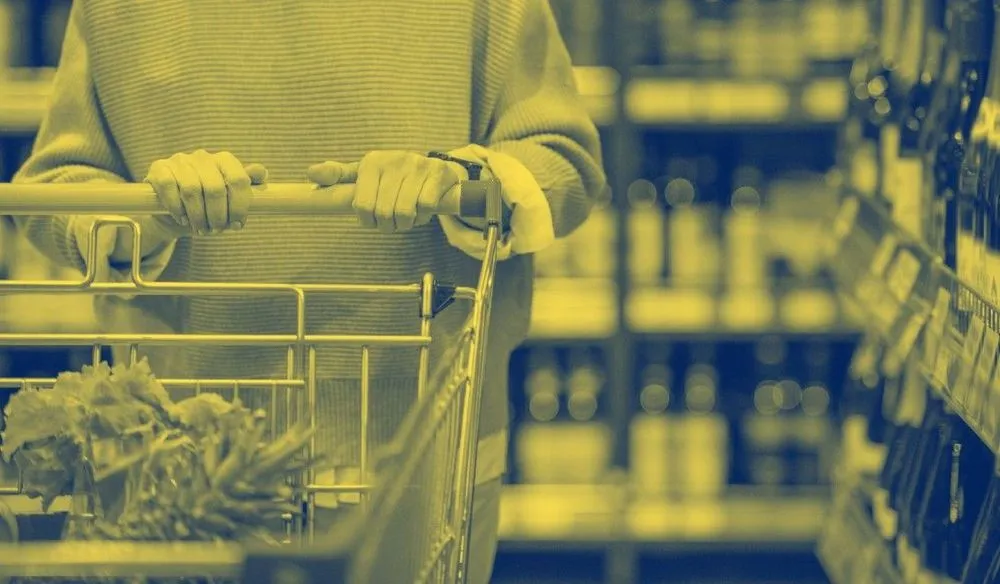Kroger’s facial recognition plans draw increasing concern from lawmakers
Kroger’s plans to roll out facial recognition tools at its grocery stores is attracting increased criticism from lawmakers, who warn that it could be exploited to increase the prices certain individuals pay for food and put customers’ personal data at risk.
In a letter Friday to Kroger CEO Rodney McMullen, Congresswoman Rashida Tlaib (D-MI) said the plans — which involve using facial recognition tools in digital displays to target advertising to customers and collect information on them — potentially pave the way for biased pricing discrimination.
“Studies have shown that facial recognition technology is flawed and can lead to discrimination in predominantly Black and Brown neighborhoods,” Tlaib wrote in the letter, which was posted on social media Tuesday. “The racial biases of facial recognition technology are well documented and should not be extended into our grocery stores.”
Kroger is the largest grocery store chain in the country with nearly 3,000 stores and $3.1 billion in profits in 2023. Kroger and other retailers already use electronic shelving labels instead of paper labels to rapidly adjust prices based on a variety of factors, including time of purchase, where a grocery store is located and other data.
The plan to use facial recognition technology could allow the retailer to build individual profiles on customers, based on data like their gender and shopping habits.
In an August letter sent to McMullen about the same plans, Sens. Elizabeth Warren (D-MA) and Bob Casey (D-PA) said they were concerned about the chain building “personalized profiles of each customer, and then use those profiles ‘to determine how much price hiking each of us can tolerate,’ quickly updating and displaying the customer’s maximum willingness to pay on the digital price tag.”
The use of facial recognition tools in Kroger stores also raises concerns about how Kroger intends to “adequately” safeguard customer data, the Warren and Casey letter said.
A Kroger spokesperson said in a statement that the company’s business model is built on a “foundation of lowering prices to attract more customers.”
“To be clear, Kroger does not and has never engaged in ‘surge pricing,’” the statement said. “Any test of electronic shelf tags is designed to lower prices for more customers where it matters most.”
In her letter, Tlaib also cited the potential for Kroger to use its system to charge customers in areas where there are few grocery stores more money at a time when grocery prices are spiking.
“Kroger’s use of facial recognition technology and surge pricing is concerning when we are hearing growing complaints about the rising cost of groceries at big retailers,” Tlaib wrote. “We’ve found big retailers with little regional competition can extract large profits simply by adjusting prices of essential goods like food items.”
The Federal Trade Commission is suing to block Kroger from acquiring rival grocery chain Albertsons in a $24.6 billion proposed deal it announced in 2022, arguing that the controversial proposed deal is anti-competitive.
Tlaib asked McMullen to respond to several questions, including whether targeted price adjustments will be offered only to certain customers and whether consumers will have the option to opt out of being “surveilled and discriminated against.”
Correction: A previous version of this story said that Microsoft was involved Kroger's facial recognition plans, based on a lawmaker's statements. A spokesperson for Microsoft said Kroger is not using the company's facial recognition technology.
Do you know about any facial recognition technology programs which you consider to be newsworthy? Please be in touch if so. Message Suzanne Smalley on Signal, which is end-to-end encrypted, at Suzanne.236 or send an email to [email protected].
Suzanne Smalley
is a reporter covering digital privacy, surveillance technologies and cybersecurity policy for The Record. She was previously a cybersecurity reporter at CyberScoop. Earlier in her career Suzanne covered the Boston Police Department for the Boston Globe and two presidential campaign cycles for Newsweek. She lives in Washington with her husband and three children.



